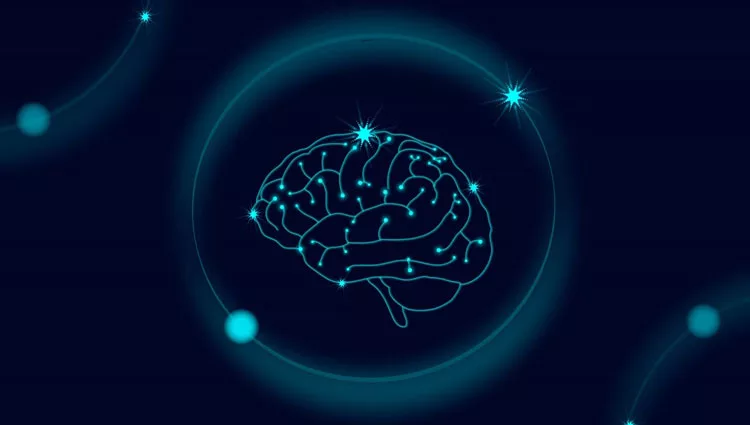The Complex Universe of the Brain
One of the most remarkable natural wonders, the human brain is a complex organ that is responsible for coordinating our ideas, feelings, movements, and experiences. Because brain diseases can have a substantial impact on a person’s life, it is essential to have a good understanding of them. Within the pages of this all-encompassing guide, the secrets of the brain are investigated, and a variety of illnesses that can impact this intricate organ are discussed.
The Role of Specialists in Brain Health
In the journey to understand and treat brain conditions, specialists like neurologists and neurosurgeons play a pivotal role. For example, a Sydney neurosurgeon may perform intricate procedures to address physical abnormalities in the brain, contributing valuable insights into the treatment and management of brain conditions. Their expertise is crucial in both understanding these conditions and providing advanced care.
Alzheimer’s Disease: A Battle with Memory
Alzheimer’s disease is a progressive neurological disorder that primarily affects memory and cognitive function. It involves the degeneration of brain cells, leading to a decline in memory, reasoning, and thinking skills. Understanding Alzheimer’s involves exploring its symptoms, progression, and current research aimed at finding effective treatments.
Parkinson’s Disease: More Than Just Tremors
Tremors, stiffness, and difficulties with balance and coordination are some of the symptoms that are associated with Parkinson’s disease, which is a movement disorder. Dopamine-producing cells in the brain are destroyed, which is the root cause of this condition. Although there is currently no cure for the condition, treatments are aimed at alleviating symptoms and enhancing quality of life.
Multiple Sclerosis: The Mystery of Misfiring Signals
Multiple Sclerosis (MS) is an autoimmune condition where the immune system attacks the protective covering of nerves in the brain and spinal cord. This leads to communication problems between the brain and the rest of the body. MS symptoms can vary widely and may include fatigue, mobility issues, and visual disturbances.
Brain Tumors: Understanding the Unwanted Growth
Brain tumors can be benign or malignant and affect various functions depending on their location. Treatment may involve surgery, radiation therapy, and chemotherapy. Advancements in medical imaging and surgical techniques have significantly improved the outcomes for patients with brain tumors.
Stroke: When Time is Brain
A stroke occurs when the blood supply to part of the brain is interrupted, preventing brain tissue from getting oxygen and nutrients. Quick medical intervention is crucial as every minute counts. Stroke symptoms include sudden numbness, confusion, trouble speaking, and loss of balance.
Traumatic Brain Injury: The Impact of Force
Traumatic Brain Injury (TBI) is a disruption in normal brain function caused by a blow or jolt to the head. Symptoms can range from mild, such as headaches and temporary confusion, to severe, leading to permanent physical and cognitive disabilities.
Epilepsy: The Electrical Storm Within
Epilepsy is characterized by recurrent, unprovoked seizures due to abnormal electrical activity in the brain. Treatment usually involves medication to control seizures, and in some cases, surgery may be an option. Understanding epilepsy is key to dispelling myths and managing the condition effectively.
Migraines: Not Just a Headache
Migraines are intense, debilitating headaches often accompanied by nausea, vomiting, and sensitivity to light and sound. They are thought to be caused by changes in brain chemicals. Managing migraines involves identifying triggers, lifestyle changes, and medication.
Mental Health Disorders: The Invisible Challenges
Mental health disorders like depression, anxiety, and bipolar disorder are linked to changes in brain chemistry and function. These conditions are as crucial as physical brain disorders and require a holistic approach to treatment, including therapy, medication, and community support.
The Brain-Gut Connection: A Surprising Link
Recent research has uncovered a fascinating connection between the brain and the digestive system, often referred to as the brain-gut axis. This link has significant implications for conditions like IBS (Irritable Bowel Syndrome) and provides insights into how our gut health can impact our mental well-being.
Advancements in Neurology and Neurosurgery
The subspecialties of neurology and neurosurgery are always undergoing development, as seen by the introduction of new diagnostic instruments, surgical procedures, and therapeutic approaches. These advances provide a glimmer of hope for improved management and treatment of disorders affecting the brain.
Lifestyle and Brain Health: Prevention and Management
A healthy lifestyle plays a critical role in maintaining brain health and preventing neurological conditions. This includes regular exercise, a balanced diet, mental stimulation, and maintaining social connections.
A Journey of Understanding and Compassion
Compassion, patience, and a commitment to lifelong learning are all necessary components of the journey towards understanding brain diseases. As scientific research uncovers additional mysteries of the brain, it paves the way for the development of more effective treatments and an enhanced quality of life for people who are afflicted.
Embracing the Complexity of the Brain
Due to the intricacy of the brain, it is also one of the most exciting topics of study in the field of medicine. We are able to make a positive contribution to the lives of persons who are suffering with brain diseases and continue to encourage developments in this vital subject if we remain aware and supportive.

